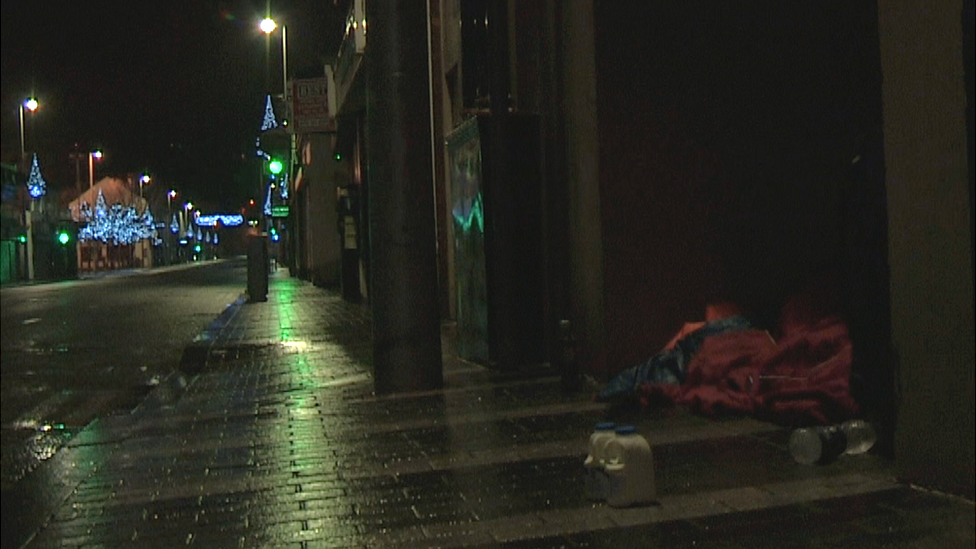Londonderry's homeless and the city's 'increasingly complex' housing needs
- Published
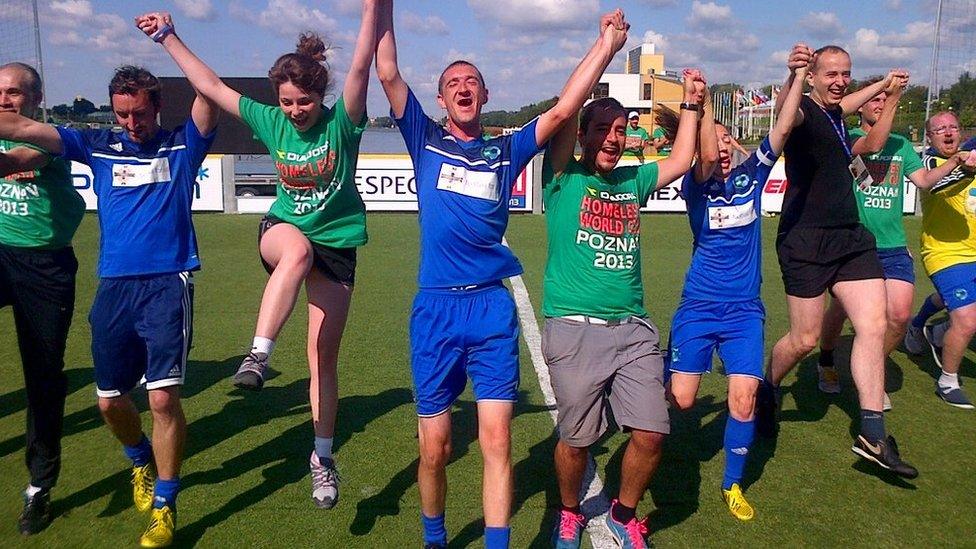
Since 2013, Street Soccer NI has sent a team to represent Northern Ireland at the annual Homeless World Cup football tournament
"I thought I was invincible, I was work, work, work, no matter what the hours, I did them. But overnight I took sick; I thought that it couldn't happen to me."
Patrick Coyle knows now that he took so much for granted.
A chef by trade, he readily worked the long hours the profession demanded.
But in April 2017, he suffered a stroke. Everything changed.
Before he took ill, Patrick rented his own home.
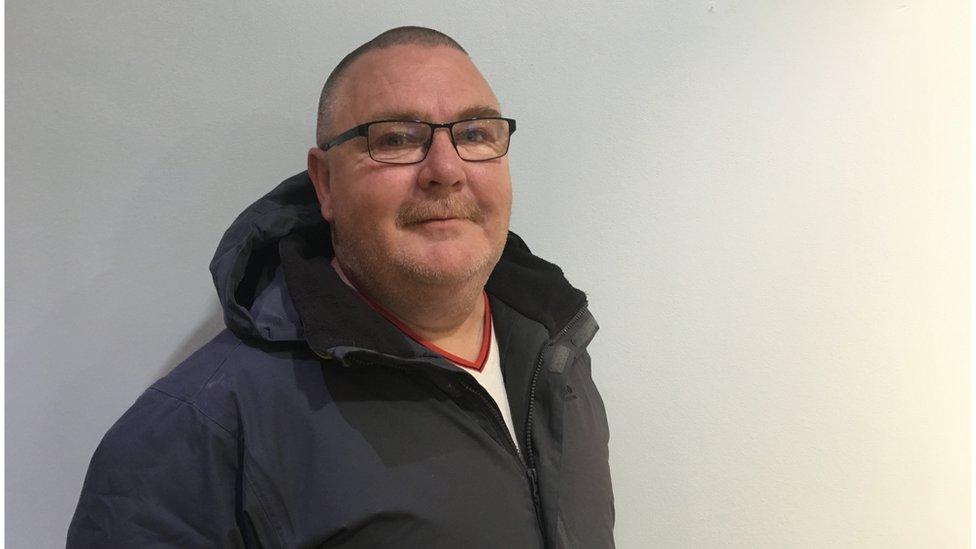
Patrick was forced to give up his flat after taking ill in 2017
"I was having blackouts, I was running back and forward to the hospital for tests.
"When I took ill I spoke to my landlord but they did not accept the dole. I was on the sick and couldn't pay the rent; I had to give up my tenancy.
"I ended up homeless and in a homeless shelter."
Patrick, who is in his 50s, is among the growing number of people in his home city of Londonderry recognised as homeless and in need of specific support.
He lives in a Simon Community flat - his "own wee space to call my own" - and is waiting to be permanently housed by Northern Ireland's Housing Executive.
He's been waiting for 18 months and, after seeking help from local charity Zest, is coming to terms with how quickly his life has changed.
"For a long time, I was very depressed - a couple of times I felt like ending it all.
"I am not one of these ones to go to talk to somebody, but someone advised me to."
He said that getting the right support helped "change my world right around". His advice to others is to never take anything for granted.

'A particular challenge': Housing those in need
The Housing Executive, Northern Ireland's public housing body, has said there has been a dramatic increase in the number of people coming through their doors with very complex and high needs.
"In the last two months, 92 young or single people have presented to our offices with either addiction to drugs or alcohol, or indeed mental health problems - it is a particular challenge for staff at the front end of the Housing Executive," area manager Eddie Doherty told BBC Radio Foyle.
"More and more often now, we have to find accommodation with specific support needs."
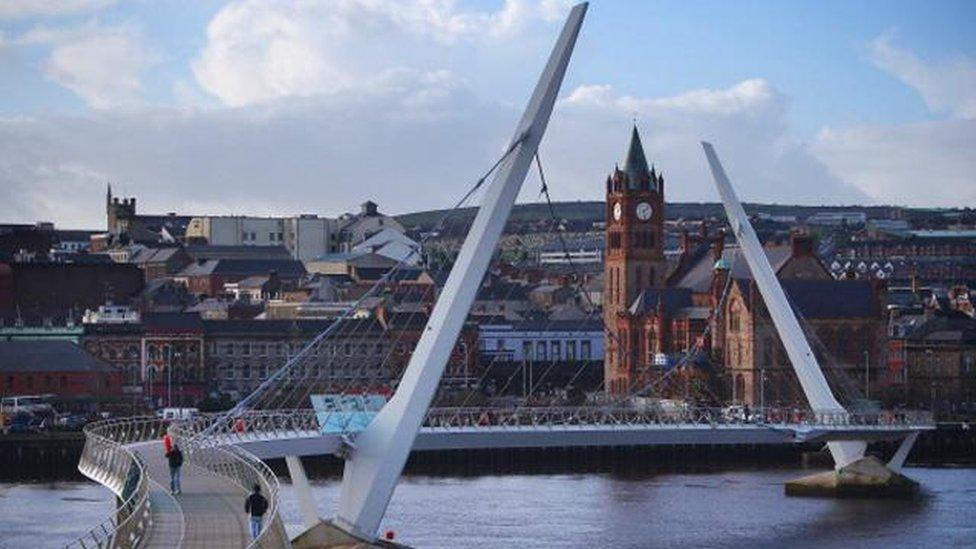
The Housing Executive says the number of people presenting as homeless who have complex housing needs is increasing in Derry
He added:" When somebody comes in with drug addiction or mental health issues, it's more challenging to find a solution for those people in a normal hostel or service provider."
He said if it wasn't for existing voluntary and charitable organisations that work in the city the situation "would be a lot worse".
"But we do need more facilities and support services coming to the city, we have been lobbying hard to bring in those services."
More than 300 families or single people are currently living in temporary accommodation in the Derry area, he said.

Unlike Patrick, David McConnell's years of homelessness are intertwined with addiction struggles.
He said much of his young life - he's now in his 30s - was a cycle of alcohol, drugs, jail, rehab and hostels.
"It was an absolute blur, it felt like a couple of weeks, but it was 11 or 12 years of madness, absolute chaos.
"Now I am comfortable with myself, with who I am, (back) then I didn't like myself."
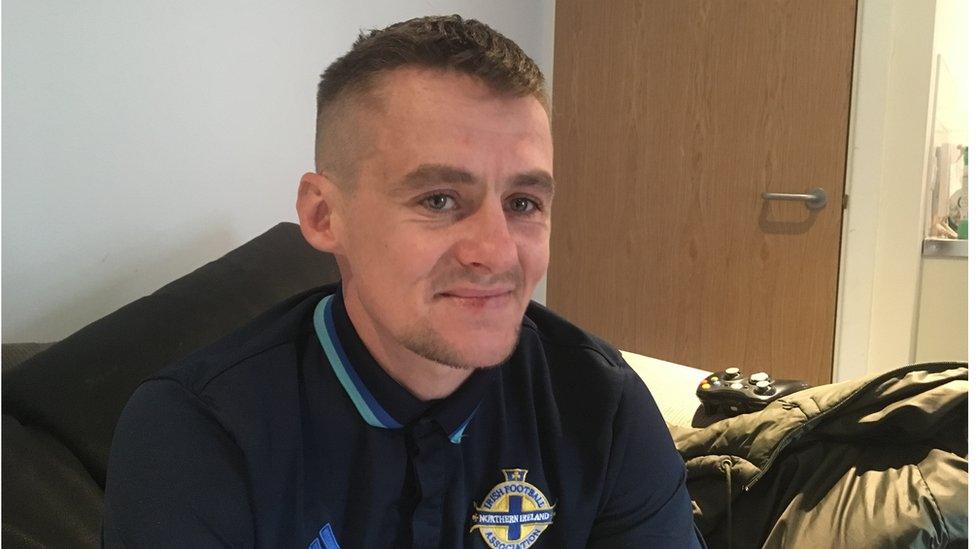
David's homelessness coincided with a battle with addiction
He said there was always support from family and friends, but struggles with addiction "make it very easy to fall into homelessness".
"But there is only so much you can put them through. You don't think you are hurting anyone but yourself, you think it is all about you.
"I single-handedly nearly broke the family up by myself, with stupidity.
"Your family hurts more than you do. It is not fair on them"
He said private landlords were immediately put off when he told them he was living in a hostel
"I was getting stereotyped, people think because you are homeless you are scum of the earth and there is a very big stigma.
"Most people who are homeless just want somewhere to put their heads down and sleep."
His said his addictions were compounded by being homeless.
'You make friends with the wrong people'
"It's a strange place being homeless, you're by yourself, you are in the big bad world and addiction gets a lot worse - a lot, lot worse.
"You make friends with the wrong people, and go to the wrong places."
His cycle ended when he was introduced to Street Soccer - a football-based charity that helps homeless and vulnerable people - while living in a hostel.
"That brought me to where I am now, and I have got my own place," he said.
Now, when David gets an opportunity to gain a qualification, he takes it.
But he is still worried about the lack of specialist addiction facilities in Derry and the pressures on existing services.
He also believes the city's drug problem is "now a lot worse than when I was younger".
For him, the city is missing something crucial.
"We need a rehab centre here in Derry."
- Published9 October 2018
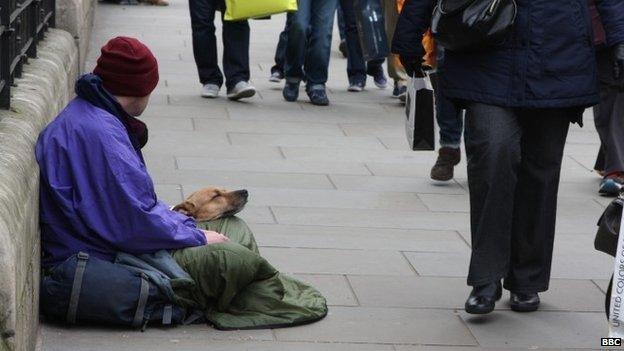
- Published18 October 2018
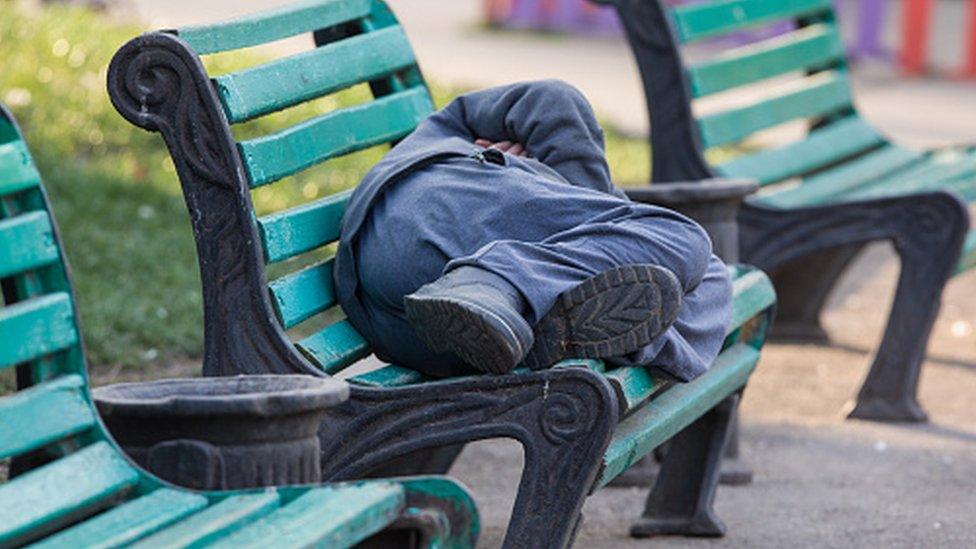
- Published2 January 2019
